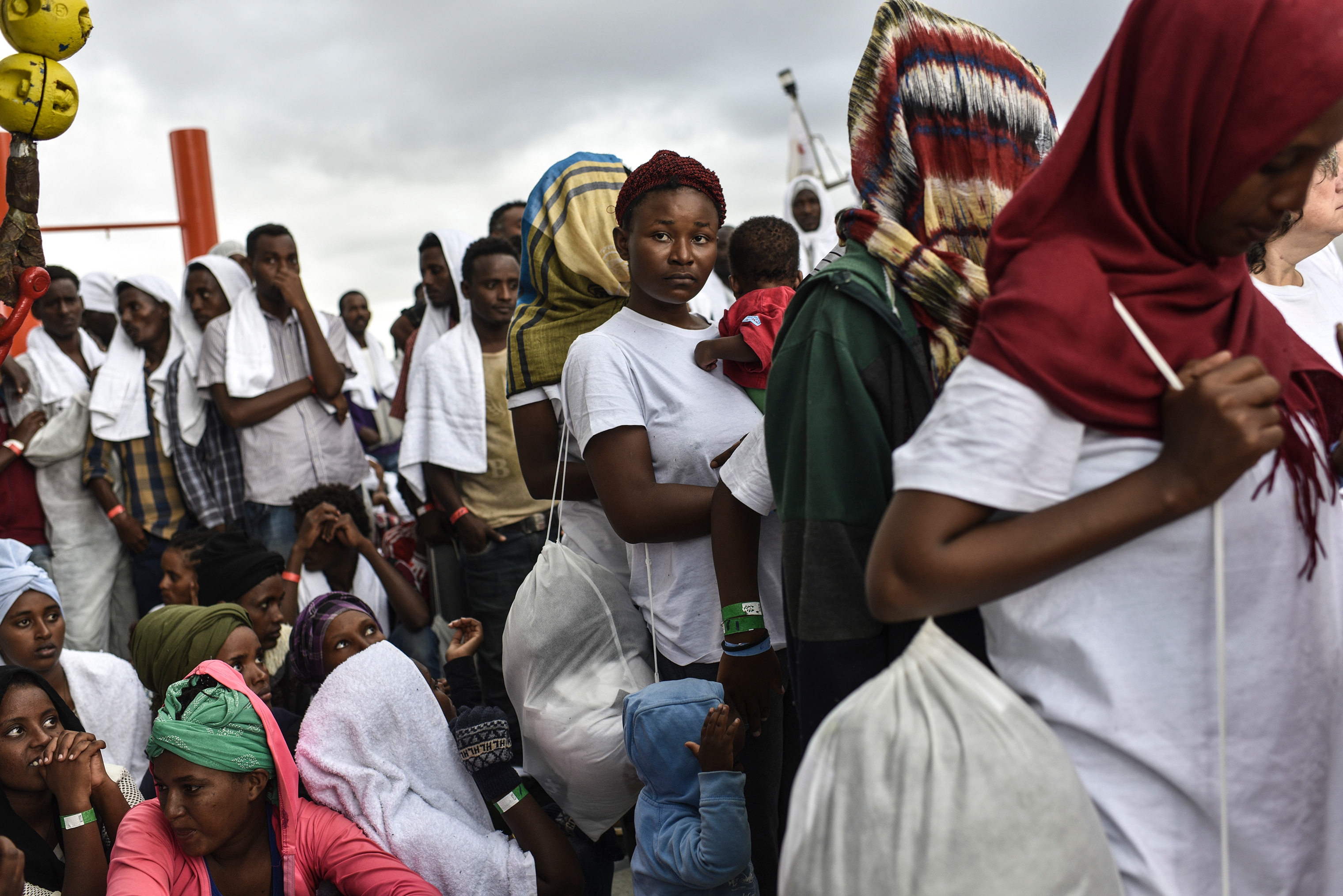On a global scale, human trafficking is the third-largest crime industry behind drugs and arms trafficking. As a form of modern slavery, human trafficking thrives on illegal trading, exploitation, misuse and abuse of humans for horrendous commercial gains and crimes, apparently, without the victim’s consent.
The modern slavery industry is estimated to generate over $150billion annually, an equivalent of Nigeria’s budget for five years. Over 40 million people are a victim of modern slavery worldwide, according to the Global Slavery Index Report, which ranks Nigeria 32/167 of the countries with the highest number of slaves – 1,386,000. Woman and children make up more than 70 per cent of this demographic.
Nigeria is at the epicentre of human trafficking and migration crisis. In the past five years, Nigeria has been highlighted as a source, transit and destination country for human trafficking. It might be interesting to state that 75 per cent of trafficked cases in Nigeria is done inter-state, while 23 per cent are intra-state and only two per cent is trafficked out of the country, this is corroborated by the National Agency for the Prohibition of Trafficking in Persons (NAPTIP).
Across the states and streets of Nigeria, cases of human trafficking abound either in the form of commercial sex, forced labour, begging, forced marriage, organ harvesting, ritual practices, etc. Think of that young boy or girl in the custody of a madam who sells him out to the highest bidder or the young lady who is prostituted by a madam.
The irregular migration portfolio of Nigeria has bloated. It was reported that 602,000 Nigerians migrated to Europe in 2016 through the desert and Mediterranean of which 27,000 died. Interestingly, Nigeria is also at the receiving end of the global migration crisis. Ongoing security challenges in the country have revealed the army of undocumented immigrants who have come to found solace in the country.
Victims of trafficking often become irregular migrants as they are illegally taken to different parts of the world with their identity, documents and passports taken from them by their traffickers, hereby contributing to the local and global burden of migration. These people suffer gross misuse and abuse, trauma, unknown and unfriendly terrain, inhuman treatments, misuse and abuse, and social rejection and disdain.
Considering the push and pull factors of illegal migration and human trafficking, it is pertinent that all stakeholders, starting with the family unit and government take proactive measures to educate, enlighten and empower their wards and citizens respectively against this social misnomer. Winning the war against trafficking and illegal starts with stopping it from happening, primarily, through reorientation and economic empowerment.
Ignorance remains a needful rewarding factor for traffickers. They are always in search of young minds and their family members who are unaware of the realities and risks of being trafficked. Traffickers paint a picture of paradise to their unsuspecting victims, only to swing the deal in the course of the journey. In checking human trafficking, therefore, public enlightenment must be increased through trusted sources – parents, religious and commercial centres, media, et al. More people need to be aware of the workings of traffickers. Only an informed mind can make informed decisions.
Empowerment, engagement and employment are also essential to stemming the tide of trafficking and illegal migration in Nigeria. When young people are incapacitated to make viable economic decisions and live comfortably, they are vulnerable to trafficking, smuggling and migrating dangerously. Government and its institutions, private and international agencies must be forthright in advancing empowerment and employment capacities in Nigeria.
While the prosecution of traffickers and smugglers has been improving in Nigeria, there is a need to do more through the relevant agencies. High profile prosecutions must be accomplished as this will send a strong signal to intending and existing perpetrators of this 21st-century crime against humanity.
Policymakers need to review existing legal frameworks on human rights abuses as such is trafficking. These laws should provide protection measures for trafficked persons, ease of repatriation for illegal migrants and active prosecution for offenders.
As a powerhouse for the African continent and emerging global development, Nigeria has so much to lose if appropriate measures are not decisively taken on curbing the trend of human trafficking and illegal migration. Think of the loses – lives, manpower, money, investments, relationships, reputation and the future. We can do better!
Tola Emmanuel is a legal practitioner.



Leave a Reply